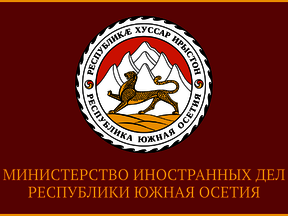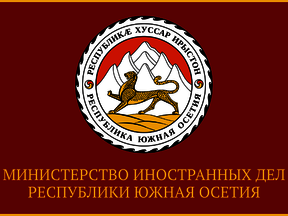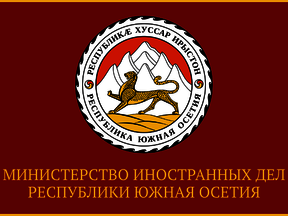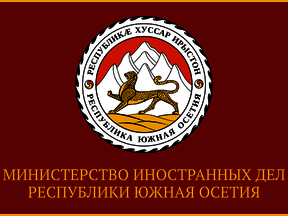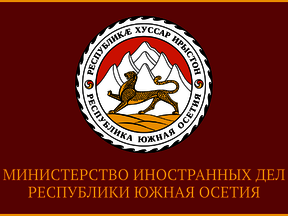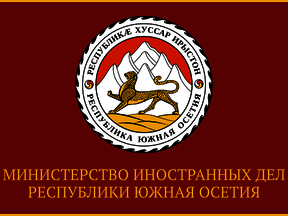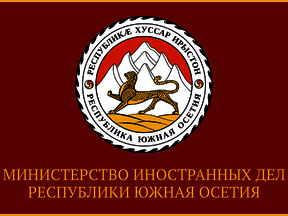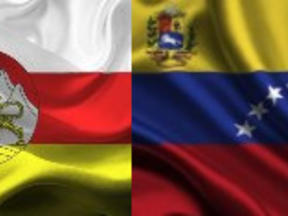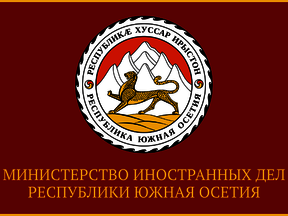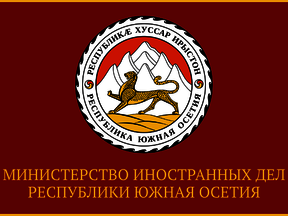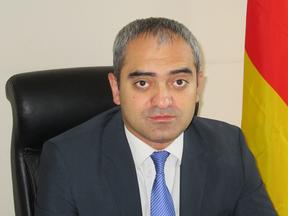A regular session of the OSCE Council of Ministers took place in Hamburg on December 8-9, 2016. The session saw a group of states-friends of Georgia circulating a statement containing appeals to Russia to call back recognition of the Republic of South Ossetia and the Republic of Abkhazia, appeals for “peaceful solution of the conflict” and reorganizing in Georgia “a full-scale OSCE mission”.
Comments by the Ministry of Foreign Affairs of the RSO
November 24, 2016 saw the Ministry of Foreign Affairs of Georgia publishing another quarterly report “on the Human Rights Situation in the Occupied Regions of Georgia”, covering this time the period from July to September of the current year.
The document differs slightly form previous “reports” and completely corresponds to Georgian logic of deliberately creating negative images of states neighboring to Georgia – the Republic of South Ossetia and the Republic of Abkhazia.
Pertaining to “Legendy armii” program (Zvezda TV) dated November 15, 2016 dedicated to Unus-Bek Evkurov, Head of Ingushetia
Pertaining to a statement made by Leonid Kalashnikov, Russian State Duma member
The statement of Leonid Kalashnikov, Russian State Duma member, made during an interview to RIA Novosti on November 16, 2016, surprised people in South Ossetia very much. According to Mr.Kalashnikov “…provides Moldova comes to a solution of its territorial conflict in Pridnestrovie, having it solved in a confederation sort, and keeps on developing relations with Russia, it will be an example for solution of conflicts in Georgia and Ukraine”.
The published information about the meeting of official delegation of the Georgian Patriarchy with James Appathurai, NATO Secretary General's Special Representative for the Caucasus and Central Asia, where as Metropolitan Andrew of Gori and Ateni stated, “the difficult situation in Abkhazia and Samachablo” had been discussed, wasn’t left without attention in South Ossetia.
October 13, 2016 saw a meeting of the autumn plenary session of the Parliamentary Assembly of the Council of Europe (PACE) where in his speech about human rights execution over Europe Frank-Walter-Steinmeier, the OSCE Chairperson-in-Office and German Foreign Minister, expressed his opinion about South Ossetia and in terms of observing the situation of human rights called the state a “grey zone” and a “black hole”.
Statements on Russia-South Ossetia relations made by Vladimir Zhirinovsky at a press-conference organized in the press center of TASS on September 14 were not left without attention in South Ossetia. In particular he declared that “the position of the LDPR is not to help anybody, any republics, anywhere … Let them develop themselves, not by means of Russia, or let them become a part of Russia or let them return to some other region”.
September 8, 2016 saw members of the House of Representatives of the U.S. Congress adopting by an absolute majority the Resolution (H. Res. 660) which contained not only the mythical and abstract theses about “the territorial integrity” and “occupation of Georgian regions” by Russia but also an appeal to give Georgia “opportunities for defense”.
September 10, 2009 saw the Bolivarian Republic of Venezuela recognizing the independence of the Republic of South Ossetia that became an important political event in political life of our young Republic. Venezuela is the third country that followed the example of Russia and Nicaragua and made such a responsible and significant for us decision despite the difficulties the country was facing at that time. People of South Ossetia will always be thankful to the Venezuelan party for that.
Diplomatic ties are established between our countries, state visit to Venezuela was organized.
The resolution “Conflict in Georgia”, prepared by Georgia delegation, has been approved at the OSCE Parliamentary Assembly that took place on July 5 in Tbilisi.
We’ve paid attention to statements made by the US State Department’s Spokesperson about the referendum on joining the Russian Federation that is going to be held in the Republic of South Ossetia.
Terroristic attacks becoming usual around the world show that no one is protected against international terrorism. Terrorism has no borders and threatens the whole world. There is no secret that special agencies themselves can be involved in organizing terrorist acts. 22 terroristic acts were organized by Georgian special agencies on territory of the Republic of South Ossetia from 2005 till 2008. They resulted in 16 victims and 34 injured who received wounds of varying severity and even became invalids.

